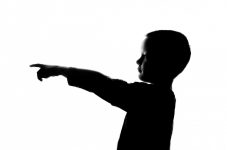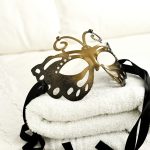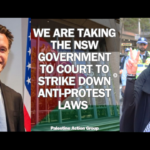How Much Weight is the Evidence of Child Witnesses Given in Court?

Evidence of children testifying in courts has been a topic where the law has changed substantially over time – the ongoing debate about how much weight (if any) can be placed on the evidence of children is unsettled by public opinion, even if it is at law.
Modern NSW and Commonwealth law states that evidence given by children holds the same weight as that that of an adult. But media and the general public seem more than a bit hesitant to accept this, and even historically it was not always the case.
In 1612 one of the most famous witch trials took place – the Pendle witch trials.
Elizabeth Device was charged with using witchcraft to contrive the deaths of three people and the main witness in the case was her own daughter, a nine-year-old Jennet.
Little Jennet sat on a table in court and announced that she thought her mother had been a witch for about three or four years and had a familiar spirit in the form of a dog. Elizabeth was found guilty and hanged.
After many innocent people were condemned in witch hunts on the evidence of a child, and the witch hunt subsided, there was a shift away from child evidence being given any weight in court, or only in rare circumstances.
This becomes very tricky in child abuse cases, particularly where young children are allegedly abused by their fathers, or mother’s partners.
Without child evidence being admissible, however, many of these child abuse cases would be unprovable.
Recent decades have seen a multitude of works and research on the question of whether or not children are highly suggestible and could be made to believe things they had never seen or experienced. In short, whether their evidence is reliable enough to be admitted in court.
Despite wide scepticism on the issue, numerous studies affirmed that children could accurately testify and the law in NSW reflects this.
Studies have shown that children as young as four may know the difference between a lie and the truth, but this is not true for all four year olds.
Accordingly, there is no set rule for the age at which a child is presumed to be competent to give sworn evidence (evidence given after an oath to tell the truth has been sworn).
The age of the child cannot be taken into account when weighing up the evidence of a child (although it can be assessed in relation to maturity).
A judge must not warn a jury that a child’s evidence is unreliable because children in general are unreliable witnesses (although they can warn a jury that the evidence of a particular child may be unreliable because of their age).
According to section 13 of the Evidence Act children are to be told that “it is important to tell the truth,” but they do not need to understand the difference between a truth and a lie.
This is designed so that young children and people with a mental disability can testify even though they do not comprehend such concepts as obligation. This evidence is treated no differently than other evidence.
The law assumes that young children cannot take the oath to ‘tell the truth, the whole truth and nothing but the truth.’ Young children do not understand the concrete meaning of truth, although they may know, in concrete instances, what a lie is.
Children who are unable to take an oath may still be competent to give unsworn evidence if the judge makes sure that the child understands the difference between the truth and a lie and that it is important to tell the truth. The child must be asked (and respond appropriately when asked) not to tell lies in court.
The court must make sure that the child understands the proceedings (usually satisfied by asking their solicitor or barrister if they understand) and the child must have the opportunity to participate fully in the proceedings.
But difficulties persist: cross-examination may confuse or upset a child and sometimes children feel pressured to answer questions in a particular way to please the adult who is asking them, even if they don’t completely understand the question.
One inquiry into child sexual assault prosecutions found that children had been subjected by defence council to ridicule, taunts, accusations, aggressive behaviour and misrepresentation in court.
One of the tragic consequences of children’s evidence being viewed with skepticism is that children who are abused may be less likely to tell someone, through fear of being disbelieved.
To find out more about criminal law, and recent changes, areas of debate and advice in criminal matters, visit our regularly updated blog.






